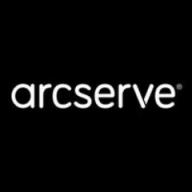

Find out what your peers are saying about VMware, Microsoft, Commvault and others in Disaster Recovery as a Service.

Arcserve Cloud Direct is used for safeguarding data through backup and disaster recovery, swiftly restoring critical data and systems to ensure minimal downtime. It integrates cloud-based management and automated data protection with reliable efficiency.
Arcserve Cloud Direct offers a powerful solution for data protection with automated backup and disaster recovery features. Users appreciate its seamless integration with platforms, emphasizing its reliability and efficiency in preventing data loss. The straightforward setup and intuitive dashboard enhance its usability, while robust security measures safeguard data integrity. Despite its high performance and swift recovery times, users suggest improvements in customer support and reliability of technical assistance. Some face challenges with initial setup complexity, pointing out the need for clearer documentation and more robust features.
What are the most important features of Arcserve Cloud Direct?Arcserve Cloud Direct's integration capabilities make it suitable for industries with extensive data protection needs, including finance, healthcare, and education. These sectors benefit from its efficient disaster recovery solutions and robust security features, ensuring compliance and safeguarding sensitive information. By offering scalable data protection services, Arcserve Cloud Direct supports businesses in maintaining operational continuity and achieving their data management goals.
Help your business to keep doing business - even during major IT outages. Azure Site Recovery offers ease of deployment, cost effectiveness, and dependability. Deploy replication, failover, and recovery processes through Site Recovery to help keep your applications running during planned and unplanned outages. Site Recovery is a native disaster recovery as a service (DRaaS), and Microsoft been recognized as a leader in DRaaS based on completeness of vision and ability to execute by Gartner in the 2018 Magic Quadrant for Disaster Recovery as a Service.
We monitor all Disaster Recovery as a Service reviews to prevent fraudulent reviews and keep review quality high. We do not post reviews by company employees or direct competitors. We validate each review for authenticity via cross-reference with LinkedIn, and personal follow-up with the reviewer when necessary.